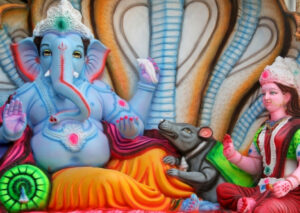The Interfaith Peace Project is pleased to offer you prayer reflections for each day of Interfaith Harmony Week, February 1-7.
The Hindu Traditions
 stock.adobe.com
stock.adobe.com
Compassion in Hinduism
Compassion is the empathetic response to others’ suffering and the activity that relieves suffering. In the Indian world it is a highly developed subject of discourse among and between Jains, Buddhists and Hindus. Within the broad diversity and timescapes of dynamic traditions called Hinduism by Westerners, compassion is integral to the understanding of ideal family relations, good governance, social order, ascetical disciplines and service to God.
Compassion as a virtue is governed and framed by the relational propriety dictated by dharma-the sacred order of the Hindu world. It is therefore difficult to differentiate from service, non-harm, charity, grace and social obligation, all of which may be expressions of compassion. There are three contexts for the Hindu notion of compassion that evolved in historic sequence, but are deeply interrelated: yogic traditions of introspection, theistic traditions of devotion, and the great medieval compendiums of dharma, the sacred world order.
In the early Vedas, Hinduism’s earliest scriptures, compassion is not a strong element. The early Upanishads – texts of introspective speculation – contain a few important passages supporting non-harm. In the later Upanishads, however, a vow of non-harm has become a ritualized element in the initiation of the renunciant. By then, the introspective disciplines had taken compassionate restraint from harm as a prerequisite for higher spiritual practice and as its natural outcome -there is greater emphasis on being nonharmful than on actively helping others. It can be argued that an ethic focused in this way may have qualities that are lacking in traditions such as Mahayana Buddhism that emphasize protection of others. That is, the fundamental way to address suffering may be to address its causes from within.
For devotional traditions, compassion descends from above. The Lord is an Ocean of Compassion and his passion for his devotees is like that of a mother cow for her calf. Great compassionate figures of the tradition are likely to be regarded as the descent of compassionate incarnations rather than as having ascended to high virtue. The devotee’s compassion is less an attainment of virtue than an act of submission and devotion to the embodiment of all virtue. Compassion is not the result of nonattachment, but rather the result of directing erotic love (all loving energy) toward an object of stainless purity. Passion paradoxically manifests as compassionate service to the Lord in inspired worldly engagement.
The Dharmashastras, encyclopedic studies of dharma, ground compassion in the foundational cosmic order. It is framed and structured by caste, life-stage, kinship and gender. This does not reduce compassion to propriety or diminish its importance as a virtue. Duty, propriety and karmic self-interest naturally resonate with altruism. The life of a rightly ordered individual in a rightly ordered universe will be characterized by compassion, and where there is the virtue of compassion one will also find dharma.
what-when-how.com/love-in-world-religions/compassion-in-hinduism
O Lord of Mercy and Love
O Adorable Lord of Mercy and Love!
Salutations and protestations unto Thee.
Thou art Omnipresent, Omnipotent, and Omniscient.
Thou art Satchidananda (Existence-Consciousness-Joy-Absolute).
Grant us an understanding heart,
Equal vision, balanced mind,
Faith, devotion and wisdom.
Grant us inner spiritual strength
To resist temptations and discipline the mind.
Free us from egoism, lust, greed, hatred, anger and jealousy.
Fill our hearts with divine virtues.
Let us behold Thee in all these names and forms.
Let us serve Thee in all these names and forms.
Let us remember Thee.
Let us ever sing Thy Glories.
Let Thy Name be ever on our lips.
Let us abide in Thee for ever and ever.
Universal Prayer
Sri Swami Sivananda


Off